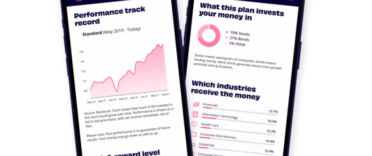Hi,
I am 48 years old, have not worked for 5 years, am now divorced and have a £170,000 lump sum to invest. The investment area I am confused about is Pensions.
How much can I contribute even though I have no income?
What are the tax benefits for me, if any?
Should I be looking at alternatives before thinking of contibuting to a pension?
Many Thanks,
Jack.
My response:
Maximum pension contribution
You can contribute up to £3,600 gross each tax year into pensions if you do not have any earnings. In practice you could contribute £2,880 net in total each year, which would receive 20% basic rate tax relief and gross up to the aforementioned £3,600.
As well as this immediate tax relief, any pension fund would grow tax-free (with the exception of holding tax on dividends) until you came to withdraw benefits. At the point of retirement, under current rules, you would be entitled to take 25% of your pension pot as a tax free lump sum while the remainder would be used to produce a taxable retirement income. (Unless you can benefit from trivial commutation and take your whole pension pot tax free)
However, your pension pot would not be accessible to you until you are aged 55.
Stocks and Shares ISAs
Given the size of the fund you want to invest then you will have to consider alternative investments as well, such as Stocks and Shares ISAs, even if you go down the pension route. Contributions into ISAs do not benefit from tax relief but the fund grows tax free (with the exception of withholding tax on dividends) and income or capital gains generated by the fund are free from tax. However, you are only allowed to put a limited amount of money into a Stock and Shares ISA each tax year (£10,680 for the 2011/12 tax year).
While pensions are undoubtedly one of the best ways to save for retirement other tax incentivised investments such as Stocks and Shares ISAs have their place. Some people prefer the greater flexibility offered by ISAs (you can withdraw your money at any time unlike a pension).
This is an interesting article from this weekend's Independent on the very subject - Pensions or ISAs: What's best for your savings pot?.
However, there are lot of things to consider, including other types of investment, when investing such a sum of money so have a read of my article Where should I invest £100,000 to generate income?
But remember the suitability of any given investment (pension or otherwise) depends on your personal and financial circumstances. For example:
- your investment timeframe
- your age
- whether you are investing to generate income or growth
- what is your attitude to risk
- your existing investments
- your tax status and available allowances
plus a swathe of other importance factors not listed. I would therefore always recommend that you speak to an independent financial adviser in the first instance who should be able to help. Have a read of my article 10 tips on how to find a good financial adviser.
I hope that helps.
Damien
The material in any email, the Money to the Masses website, associated pages / channels / accounts and any other correspondence are for general information only and do not constitute investment, tax, legal or other form of advice. You should not rely on this information to make (or refrain from making) any decisions. Always obtain independent, professional advice for your own particular situation. See full Terms & Conditions and Privacy Policy.





